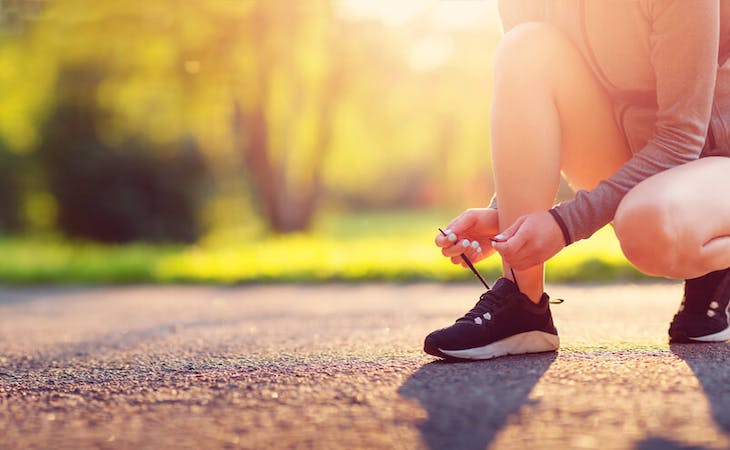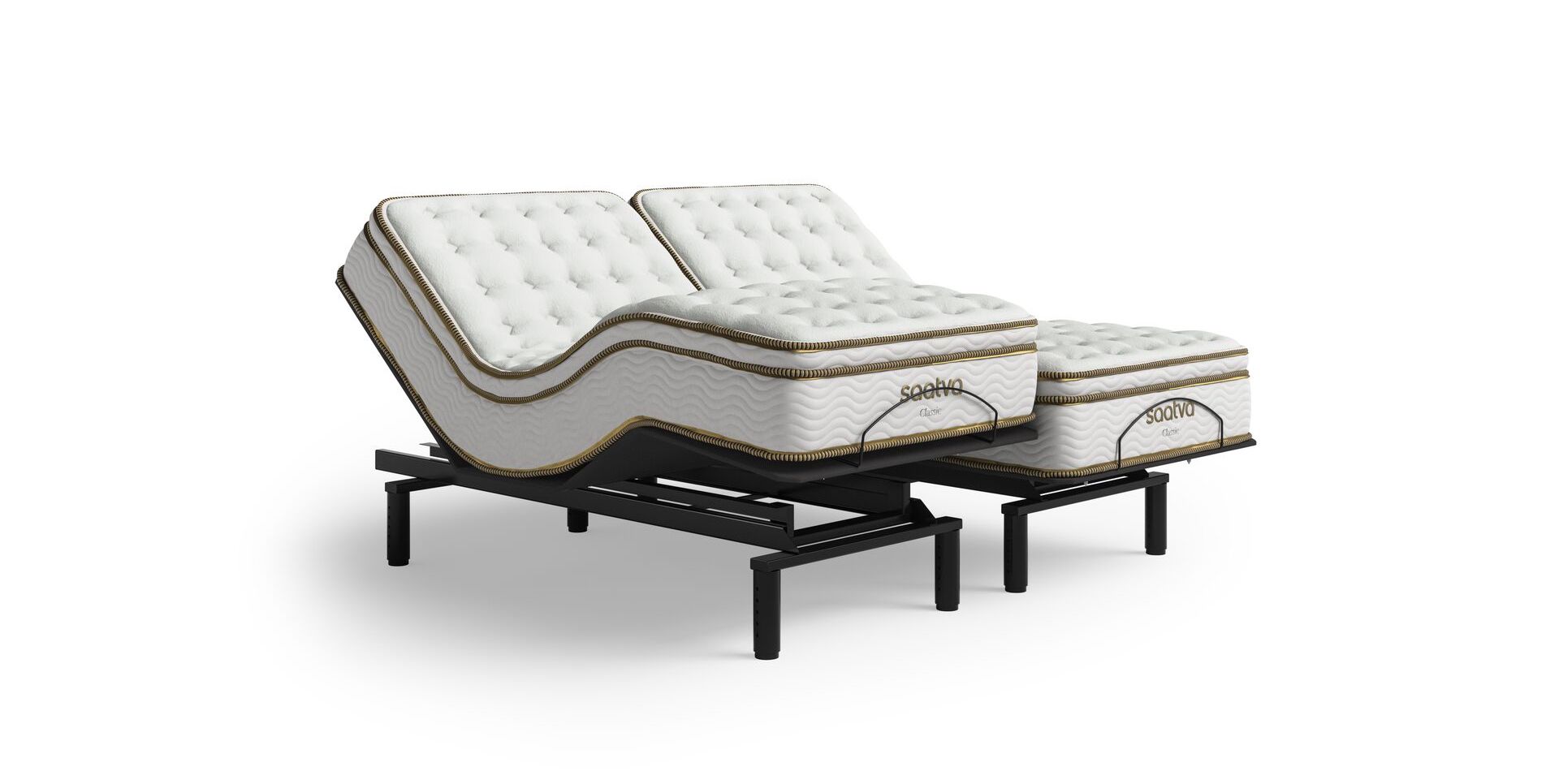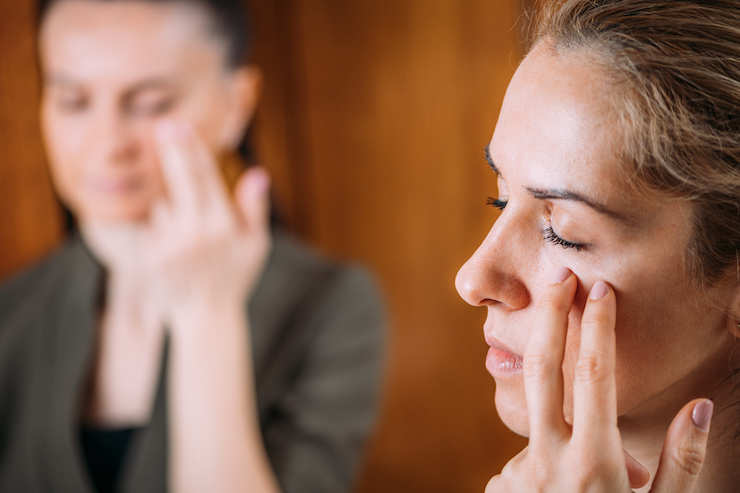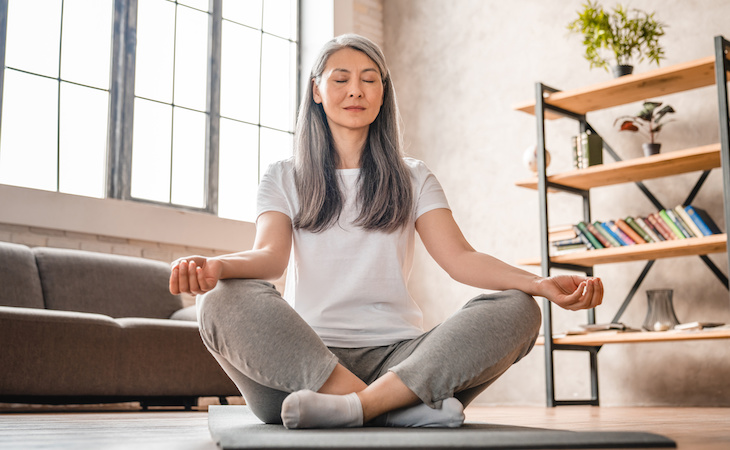One of the most popular ways people are coping with the stress of the coronavirus pandemic is by running. In fact, according to NPR, running, walking, and biking have all spiked in popularity over the last couple of months. It makes sense that so many people would turn to running right now. Science finds exercise can seriously improve your mood, help relieve anxiety, and even make it easier to get a good night’s sleep—something that can be hard to come by in this high-stress time.
Research also shows sleep affects your running performance. A study published in the American Journal of Lifestyle Medicine looked at the relationship between sleep and exercise and found that it was bi-directional. Not only does exercise affect sleep, but sleep impacts exercise—and a bad night’s snooze negatively affects daytime activity levels and muscle function.
6 best sleep tips for runners
Whether running is a new hobby for you or it’s something you’ve been doing for years, the following sleep tips can help you maximize your time spent pounding the pavement.
1. Prioritize deep sleep
Getting more deep sleep, also known as slow-wave sleep, is the key to faster runs, according to a recent article in Runner’s World. Deep sleep is the most restorative stage of sleep—it’s when tissue repair happens, and it allows your body (and mind) to recover from the stresses of the day so you wake up feeling refreshed.
Carissa Alinat, PhD, hormone therapy specialist, tells Runner’s World that human growth hormone (HGH), which plays a role in your body’s ability to repair muscles, is released during deep sleep. Less deep sleep is linked to lower HGH levels and, in turn, worse athletic performance, she says.
Deep sleep should account for about 25% of your total sleep time—so roughly two and a half hours, says Michael Breus, PhD, clinical psychologist and sleep specialist.
2. Optimize your bedroom
You can prime yourself for sleep—and a successful run the next day—with the right bedroom setup. That starts with your mattress: If you can’t get comfy in bed, you won’t be able to sleep well.
Look for a mattress that has added lumbar support to protect your back and cooling features so you don’t wake up sweating in the middle of the night. Consider an adjustable base too—elevating your legs post-workout can help aid in muscle recovery while you sleep. (Read our guide to choosing the best mattress for athletes.)
Aside from your bed, make sure to keep your bedroom cool, dark, and quiet. The National Sleep Foundation recommends setting the thermostat somewhere between 60 and 67 degrees. You can block out light by using blackout curtains or wearing a sleep mask and get rid of noise by placing a white noise machine by your bedside. Keep your phone outside your bedroom so the light doesn’t disturb you. (Learn about the sleep and health benefits of pickleball.)
3. Stick to a consistent routine
Try to go to bed and wake up at the same time every day, sleep researcher Cheri Mah suggests in Runner’s World. Mah says this will help train your body to fall asleep more easily.
As for how much sleep you should aim for, professional trainer Jamal Liggin tells Saatva you should try to get at least six to eight hours, noting that the risk of injury goes way up if you work out while tired. (Follow Liggin’s other sleep tips for athletes.)
4. Stretch before bed
Liggin recommends stretching for 10 to 20 minutes before hitting the sack. This will help relieve tension from the day and put your body into “sleep mode.” Some of the best stretches to do before bed include child’s pose, downward dog, and seated twist.
Another expert-approved stretching routine for runners: progressive muscle relaxation. This involves tensing and releasing individual muscle groups to alleviate tension in your body.
Related: 5 yoga poses to help you sleep
5. Up your water intake
Liggin advises ditching the sugary drinks before bedtime because they’re stimulating. You should also avoid caffeine too close to bedtime.
Stick to good ol’ H20 instead. Dehydration can lead to nighttime leg cramps, so it’s crucial to make sure you stay hydrated, says Liggin. (Here’s how to drink enough water without waking up to pee.)
6. Take a warm bath
Wind down with a relaxing nighttime routine. One of Liggin’s favorite pre-bedtime activities is taking a warm bath, as this can help soothe and loosen sore muscles. Plus, research shows people who take warm baths before bed experience deeper, more restful sleep.
For more ways to unwind before bed, check out our guide to the most relaxing nighttime activities.












